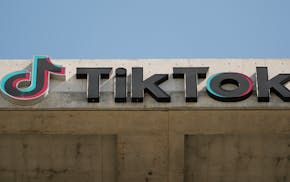At Select Comfort Corp., the bedmaker and retailer, its patented air mattresses have failed to cushion its crashing fall.
The stock has plummeted 73 percent in 15 months, and earnings have declined the past four quarters. Officials have said fourth-quarter sales and earnings, due out this morning, will once again be below expectations. Some analysts predict an 8 to 10 percent drop in same-store sales.
The housing and furniture slump has taken a toll on other bedding stocks, which have dropped 40 to 50 percent in the last year. But Plymouth-based Select's stock has fallen further -- from $25 about 15 months ago to just $7.34 a share. Critics insist that many of its problems are its own, from marketing campaigns that have failed to spur sales of adjustable Sleep Number air beds to ill-timed, expensive stock buybacks. Its former retail partner, Sleepy's, recently sued Select for allegedly bad-mouthing its bed products. (Select countersued, alleging that Sleepy's stole employees.)
Other observers wonder if the company expanded too fast, while some ask whether the product -- an adjustable air mattress bed where each side can have different firmness settings -- is simply a fad whose time has gone.
"What concerns people is it's not just a marketing problem, but that it's a product appeal problem," said one investor who bought the stock years ago but didn't want to be named. "If that is the issue, then it's kind of harder to fix."
In short, the problems are enough to make some investors wish for the days when all the bedmaker had to worry about was moldy mattresses.
Select Comfort officials declined to comment for this story in advance of today's earnings. In October, the company reported that nine-month earnings fell 30 percent to $25 million on flat sales of $608 million. It's a big contrast from the heady days of 2005, when sales skyrocketed 23 percent and earnings leapt an amazing 39 percent.
Last month, Select Comfort laid off 20 corporate employees in Plymouth, including investor relations head Frank Milano. "The staffing at the headquarters had become overstated," he said.
Since 2006, the company has repurchased $212 million worth of shares at an average price of $18.39 each. That's more than double the stock's worth today.
Equity analyst Ira Carnahan with T. Rowe Price said his firm is also buying, recently purchasing 2 million shares.
"We think there is a lot of promise here. But there is also a lot of uncertainty right now," Carnahan said. "Investors are trying to figure out what has gone wrong. Is it mostly just the broader bedding market, or is it something more specific to Select Comfort?"
Bob Evans, an analyst at Craig Hallum, thinks it's a combination of both. "The consumer environment is weak and the housing environment is weak, and that has had a greater impact on Select Comfort than the company or investors ever perceived," Evans said. "Secondly, they had their second start of trying to change their marketing program. They didn't get the desired results this last go-round, and they are in the [revamping] process again. ... Their marketing program just hasn't given them the sales lift that they thought."
Milano, who joined Select from Dell less than three years ago only to be laid off last month, also blames recent woes on flat marketing, but said he's still a shareholder and believes the business will work.
"The question ultimately becomes a matter of timing as to 'when?'" he said. "There is a glaring need for marketing to be the engine for growth."
Sleepy partners
In past years, Select quickly expanded to 479 mall stores, advertised on radio and TV and showcased its beds via the Radisson Hotel chain. Then two years ago, it also began selling its beds through retail partners such as Sleepy's on the East Coast and other retailers out West. This fall, Select pulled the plug on several partnerships, saying sales didn't pan out as hoped.
The Sleepy's relationship deteriorated into a tit-for-tat lawsuit that has yet to be resolved. Ultimately, Milano said, it's a "disappointing" situation that might have worked, given that Sleepy's 400 stores gave Select Comfort greater visibility in and around Manhattan.
Analysts said Select Comfort might be better going solo. Other retailers may not take the time to explain Select's unique technology, which "can take an extra 15 to 30 minutes" per customer, said Milano. Traditional beds without pumps and dials may just take 5 minutes to sell.
"Select has had enough customer success where you can see it's not a gimmick. It's real," said analyst Evans. "There are enough market studies that show that once it gets into a market, it continues to grow for a number of years." But the problem has become the popularity of high-end foam mattresses, such as from competitor Tempur-Pedic. "That category has expanded faster than the air category."
To fight back, Select Comfort introduced several big-ticket beds last summer featuring rich European fabrics and high-tech temperature-reading foams that automatically keep the bed a constant temperature. The technology was introduced just in time for consumers to shut their wallets because of recession worries.
The International Sleep Products Association predicts sales for the entire industry should grow 2 percent this year despite difficult market conditions. But on Jan. 31, competitor Sealy Corp. reported fourth-quarter earnings that fell 20 percent to $17 million.
Today will tell for Select Comfort. In December, Select CFO James Raabe said sales trends "remain below expectations and have since softened at a time when we had projected continued improvement."
Dee DePass • 612-673-7725
Biden administration moves to make conservation an equal to industry on US lands
Stock market today: Wall Street limps toward its longest weekly losing streak since September

